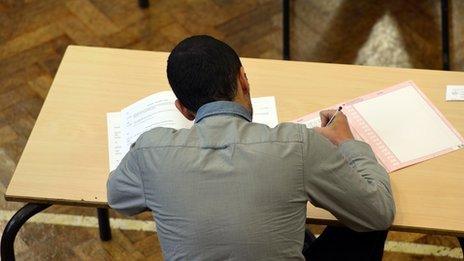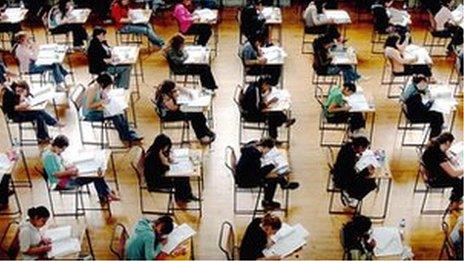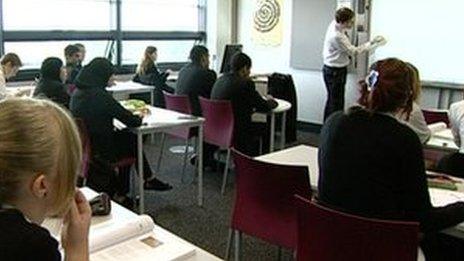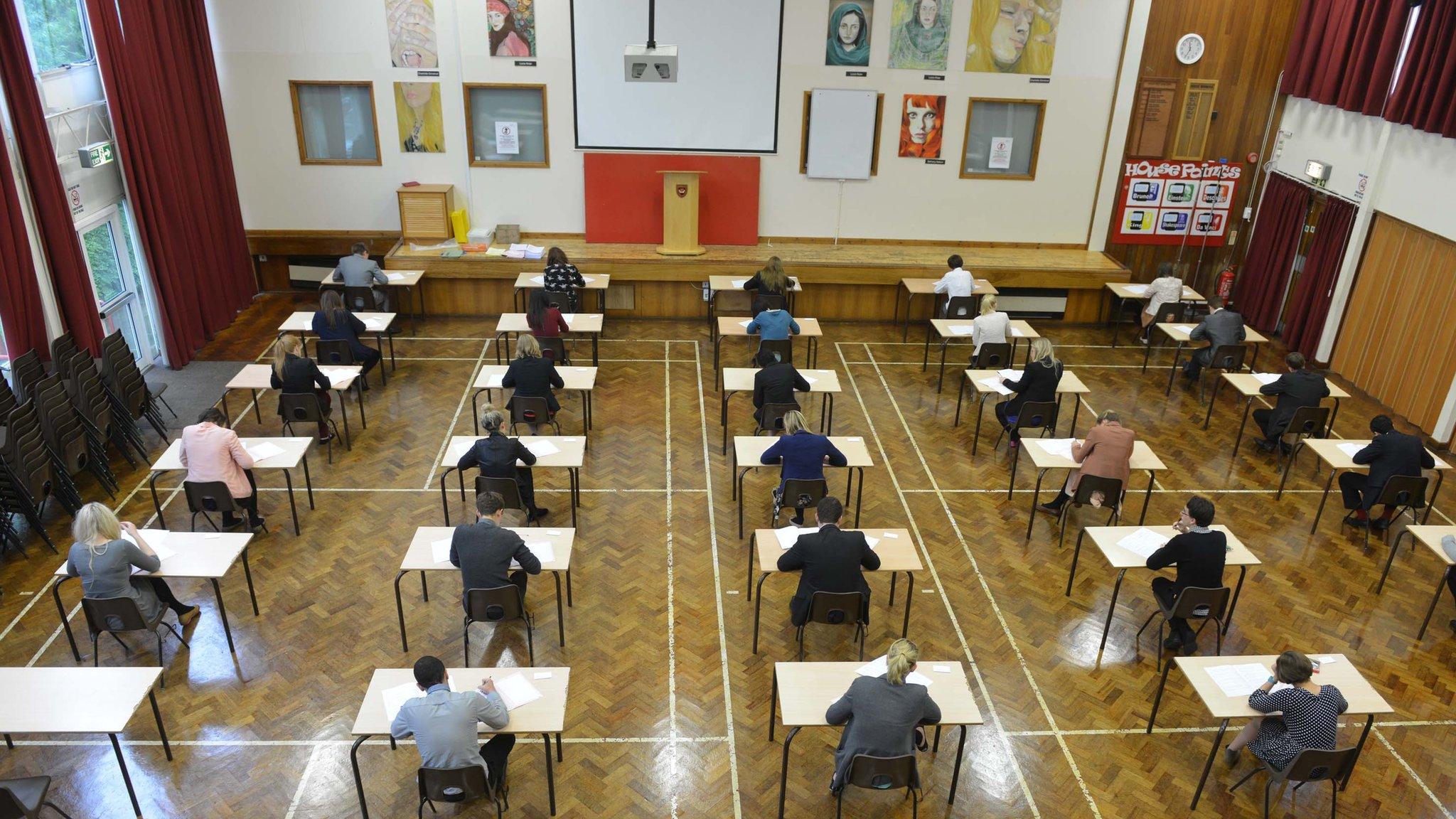Exam changes risk problems for schools, say heads
- Published

England's schools are heading for the biggest exams shake-up for 30 years
Changes to the exam system, which come into force in six months, risk causing significant problems for schools, head teachers are warning.
The National Association of Head Teachers says it fears an extended time of volatility, with students unsure which exams and subjects to take.
The government hopes to make A-levels and GCSEs in England more rigorous.
It wants pupils to achieve the levels met in high-performing countries such as Singapore, Korea and Hong Kong.
In an attempt to achieve this, ministers have ordered the biggest shake-up of the exams system in three decades.
This includes phasing in new, tougher GCSEs and A-levels with new content and examinations at the end.
The biggest change introduced in the autumn term will be at AS-level.
'Not all bad'
Currently taught in the first year of sixth form, the qualification will no longer count towards the final A-level result in many, but initially not all, subjects.
NAHT general secretary Russell Hobby said: "We face an extended period of volatility.
"The cause of this volatility is the sheer scale and speed of changes to the examination system - changes to both the scoring of the exams themselves, and to the way these scores are used to judge the performance of schools."
He said that on top of this, a new way of measuring both secondary and primary school performance was being introduced.
"Not all of these changes are bad," Mr Hobby said.
"The concern is that the scale and pace of them will make it very hard indeed to know what will happen and how the changes will interact."
'Unnecessary pressure'
Association of School and College Leaders general secretary Brian Lightman said: "School and college leaders are deeply unhappy about the way in which a large number of changes to exams have been introduced in a short space of time in a piecemeal manner.
"This has resulted in them having to manage an extremely difficult situation, with changes to many different qualifications happening at different times.
"This process has also put teachers under a great deal of unnecessary pressure, and the confusing nature of the changes has caused students and their parents anxiety.
"These problems could have been avoided if changes had been introduced in a more manageable and coordinated way."
'Big maths'
At 1,300-pupil comprehensive Hampstead High School, in north London, assistant head Adam Hedley said: "The entire school is going to be affected in some way by the first of the exam reforms.
"The problem has been making sure we are able to cover all the stuff we need to cover in Years 7, 8 and 9 to prepare them to start the new GCSE curriculum."
Head of sixth form at the school, Zoe Fisher, says she is trying to decide whether to continue to run a stand-alone AS-level course for pupils who only want to study for one year. If she does, she will also have to run a separate new A-level course for those who want to complete two years of study.
At GCSE, English and maths will become more challenging.
Topics such as calculus, differentiation and kinematics, previously taught to 17-year-olds will now be introduced to 15-year-olds.
Teachers have dubbed the new course "big maths" because there is so much more content. Some schools have estimated they will need an extra hour each week to teach it.
The government says it is making the changes to raise standards - so England's schools can compete with some of the top ranking education systems in the world like those in Korea, Singapore and Hong Kong.
Other GCSE subject changes will be phased in over the next few years.
Last week at a speech in Coventry, exams regulator, Ofqual, warned the system could not tolerate any further reform under a future government until these changes have been completed and allowed to settle.
A Department for Education spokesperson said: "As part of our plan for education we have made important reforms to our exam system to ensure young people leave school ready to succeed in life in modern Britain.
"Our crucial reforms are ensuring pupils take qualifications that are on a par with the best in the world. We recognise that these vital reforms have led to changes in the system but they can be implemented, which is a testament to the dedication of our schools and teachers.
"We are replacing the system which rewarded schools to push pupils to scrape a C and moving to a new system which encourages high-achievers and recognises schools for the progress made by all pupils."
- Published1 November 2013

- Published23 January 2013

- Published9 August 2013
